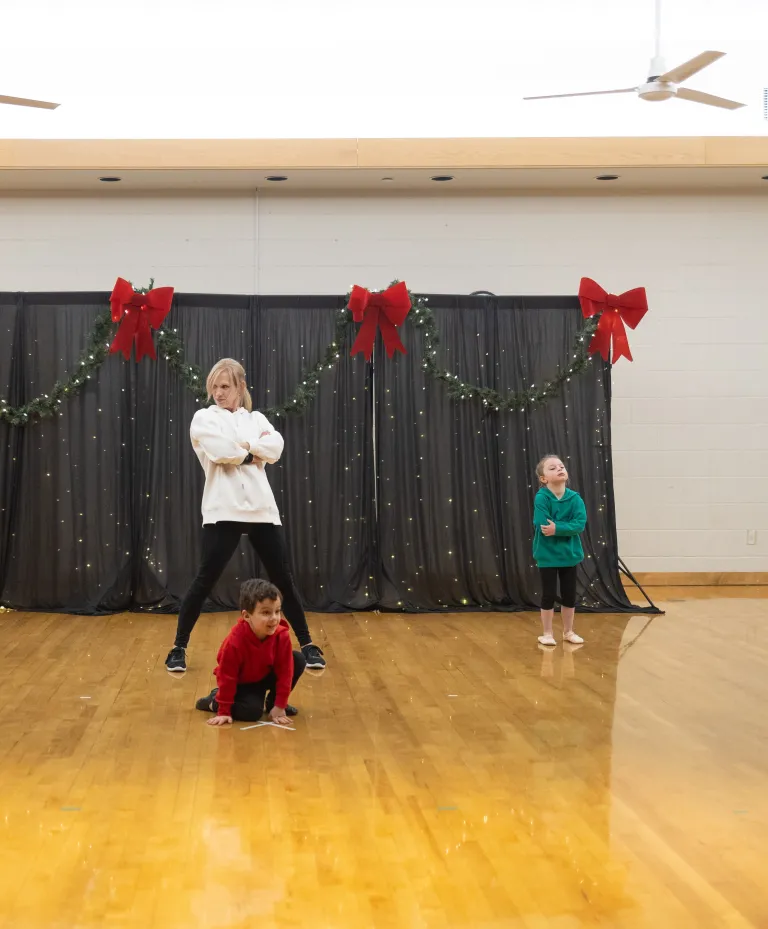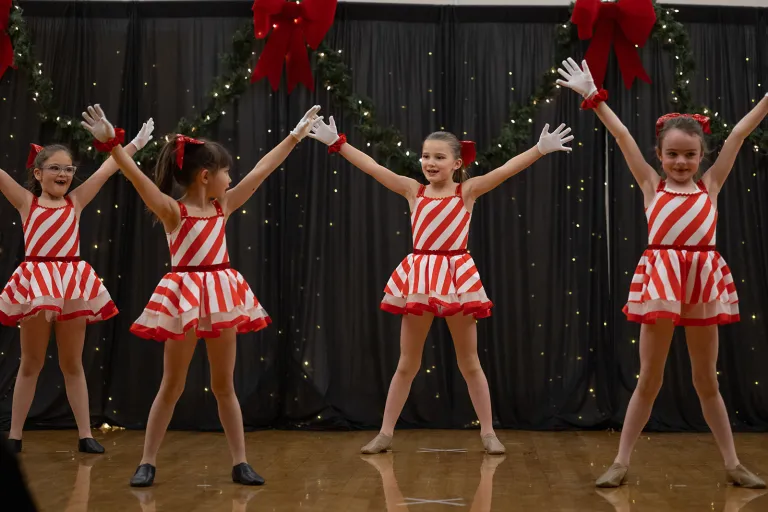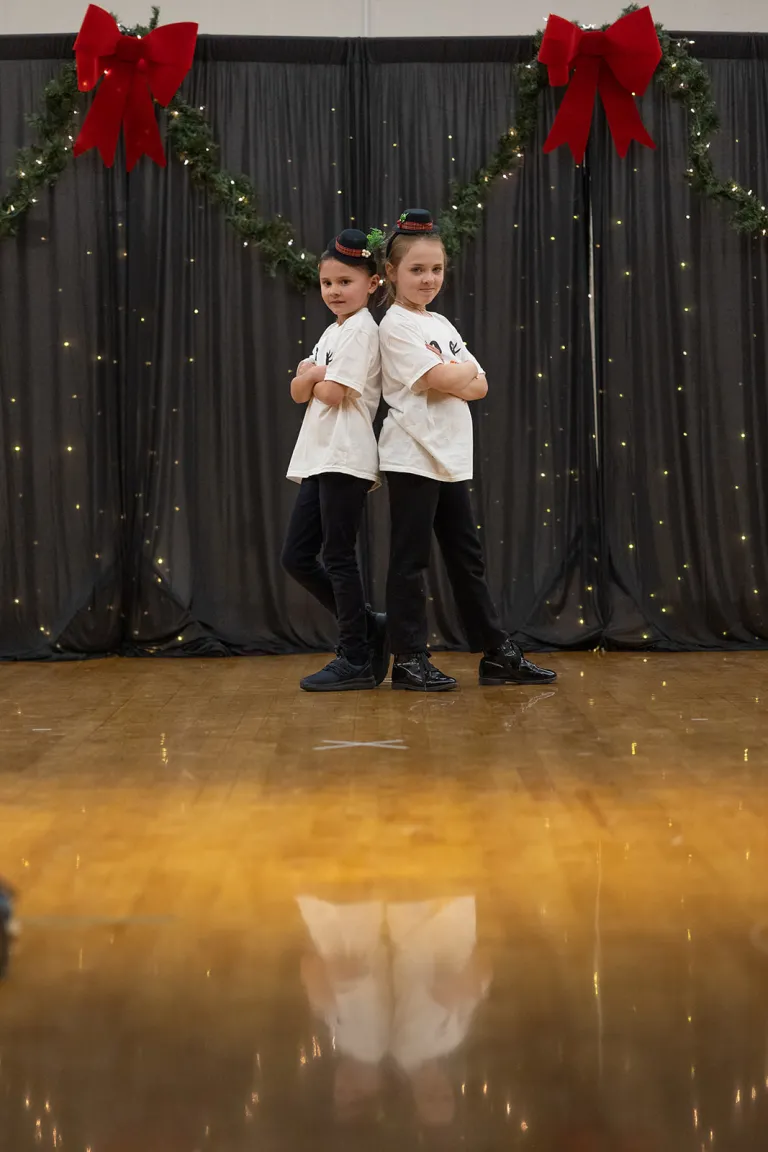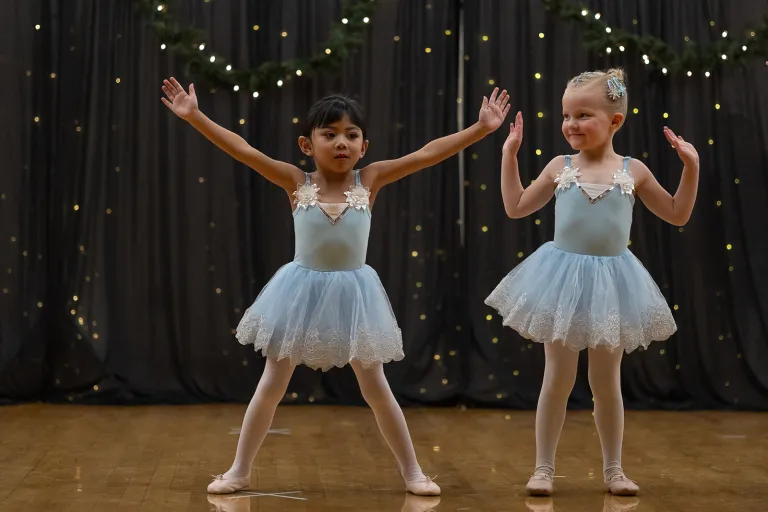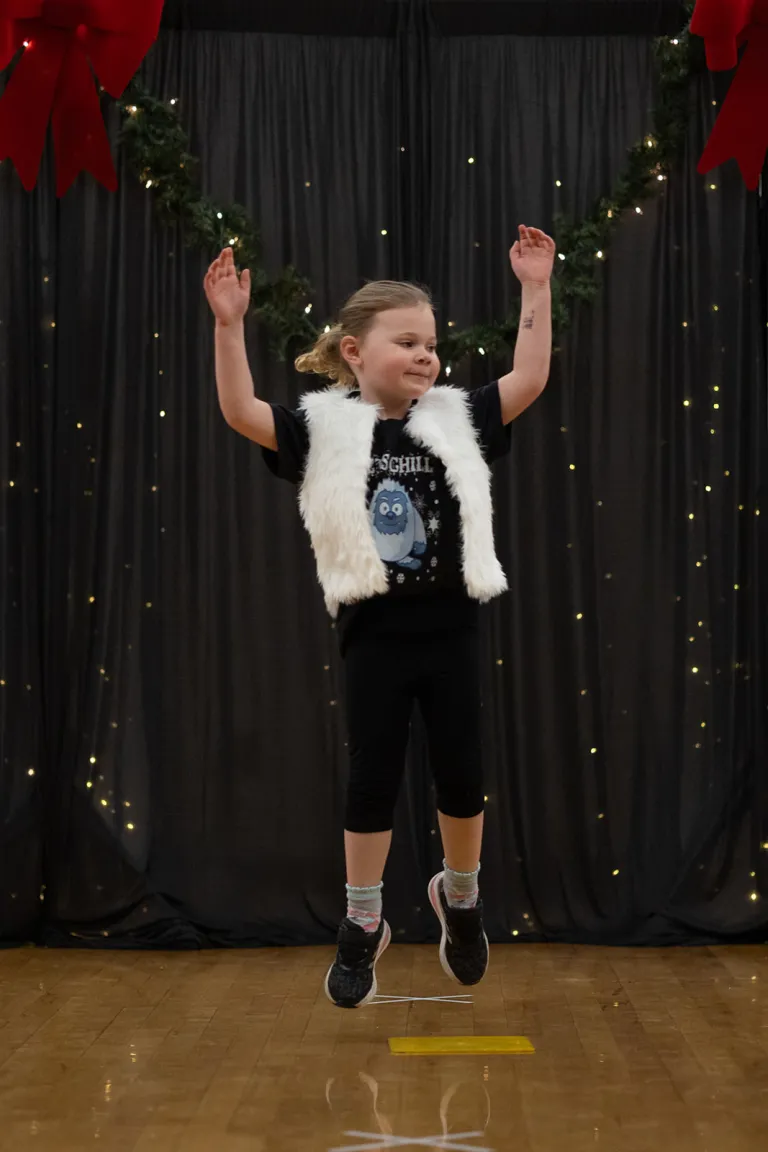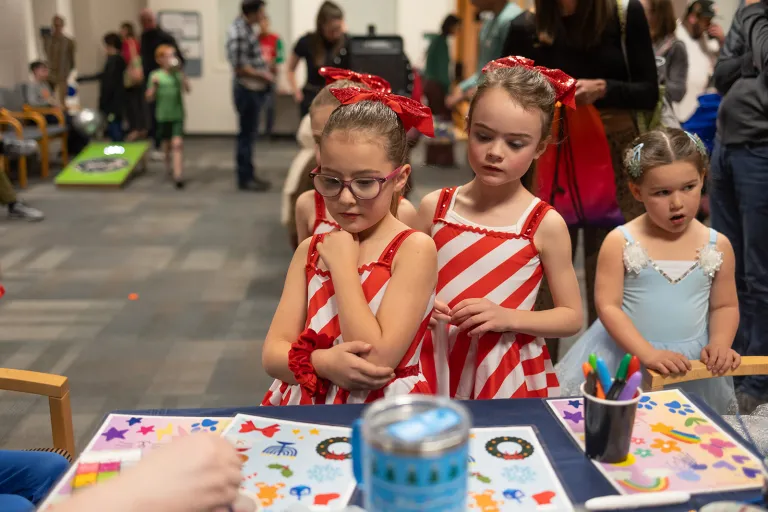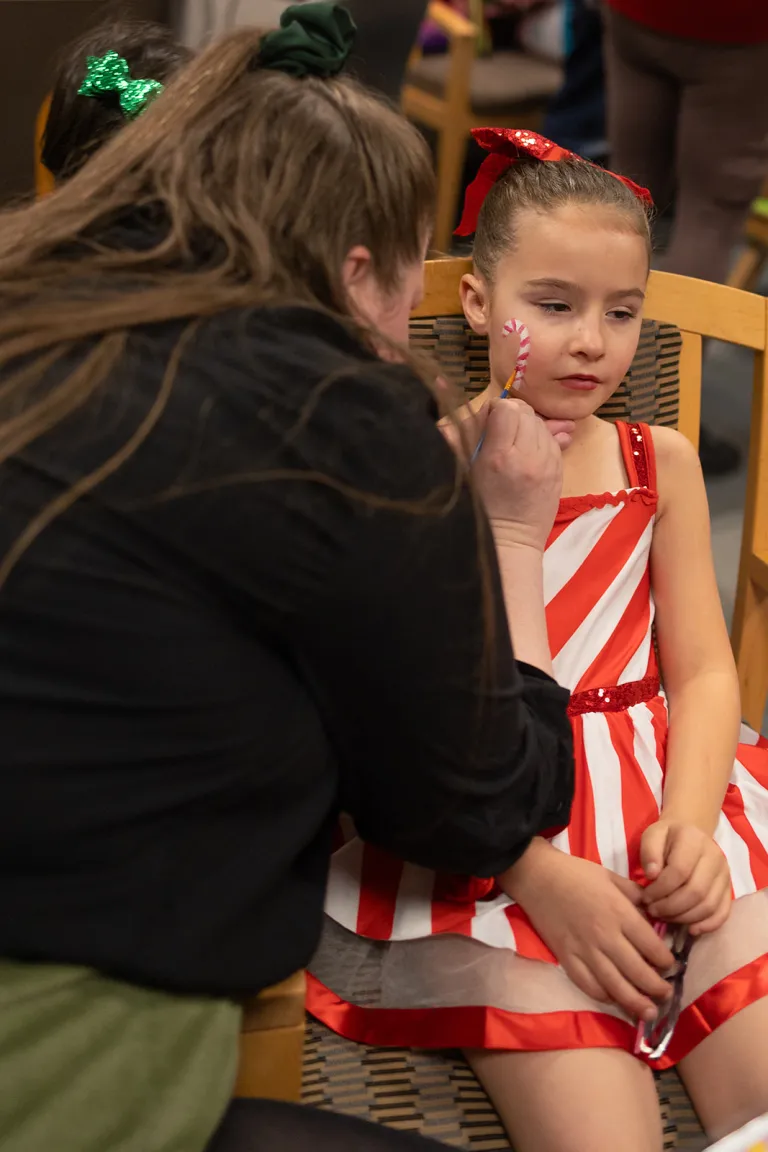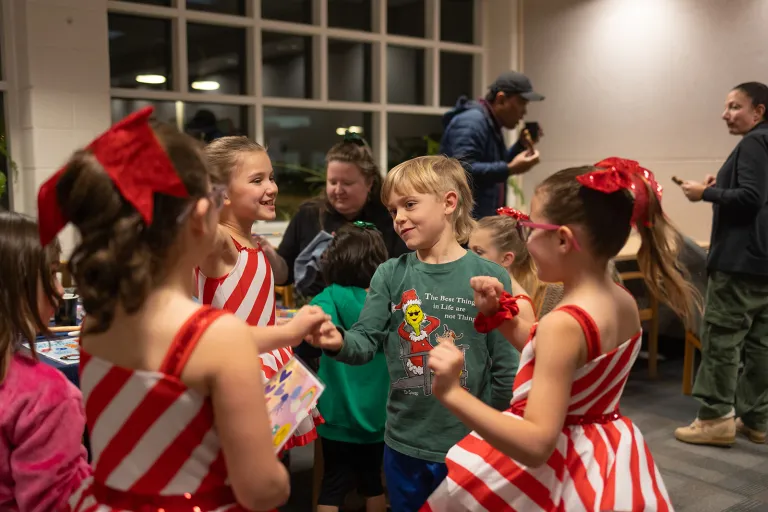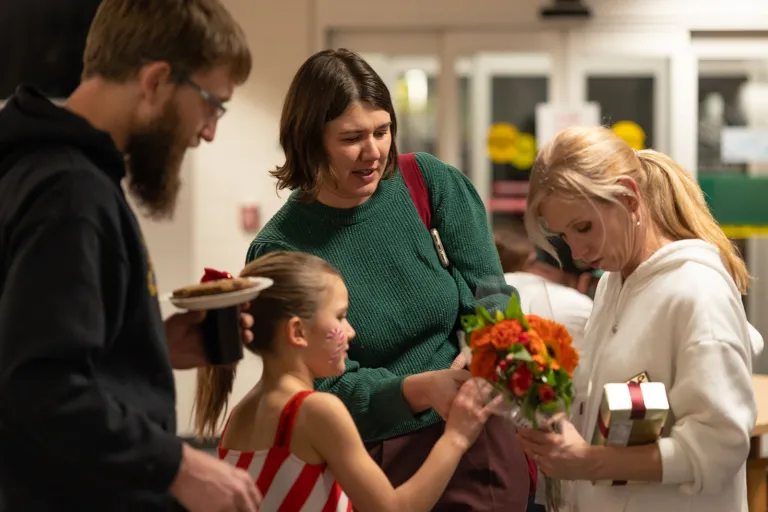About the Dance Program
Our mission is to celebrate the joy of movement and foster a love for dance in a welcoming and inclusive environment. We aim to inspire creativity, build confidence, and promote self-expression through accessible and engaging dance experiences for individuals of all ages and skill levels. At the heart of our program is a commitment to community, fun, and the transformative power of dance.
Dance Class Schedule
Coming Up
Create-A-Class
Did you know you can create a class with just 3 participants? Let us help you make the perfect dance class for you. For more information, email lesliek@bouldercolorado.gov
Featured Events:
Move & Groove Dance Fitness
Boost balance, coordination,and flow! This 6-Week Dance & Mobility program blends movement to upbeat Latin and modern dance with light weight training. No dance experience needed. Get ready to feel good and have fun!
Tuesdays, Dec 2 - Dec 16, 9:30-10:30 am
East Boulder Community Center
Winter Dance Concert 2025
Join us for the Winter Dance Concert 2025 on Sunday, December 14, 1-3 pm at the East Boulder Community Center.
Dance Performance 1-2 pm
Games, refreshments and fun winter activities in the lobby 2-3 pm. For more info: lesliek@bouldercolorado.gov
Featured Workshops:
Hula Dance Workshop with Shireen
Experience the rich dance tradition of the Hawaiian Islands. Both hula kahiko (ancient style) and hula ‘auana (contemporary style) will be introduced, and a lovely new easy-to-learn hula will be taught. Everyone is welcome - no experience is necessary!
Nov 15, 2025, Noon - 1:30 pm
SWING into the Holidays
Ring in the Holidays with some Swing Dancing. This dance is perfect for every Holiday occasion! No Partner Required.
Dec 13, 2025, 2 - 3:30 pm
Winter Dance Concert
Participants enjoying performance and activities at the Winter Dance Concert 2024
Why I should take more than one dance class during the session:
I can't decide which class to take! Should I take more than one dance class at a time?
Whether you are 4 or 84, engaging with multiple dance styles offer a variety of benefits! These include:
- Versatility: Just like having different tools in your toolbox, learning various dance styles gives you a wider range of movements to draw from. This makes you a more versatile dancer and allows you to adapt to different choreographies and performance situations.
- Physical Development: Different dance styles focus on different types of movements and muscles. Cross training helps you develop strength, flexibility, and coordination across various areas of your body, leading to overall physical fitness.
- Creativity: Learning different dance styles encourages you to think creatively. You can blend movements from different styles to create something new and unique, just like mixing colors on a palette to create different shades.
- Confidence: As you gain proficiency in different styles, your confidence as a dancer grows. This newfound confidence can extend beyond the dance floor into other areas of your life.
- Cultural Appreciation: Many dance styles have cultural roots and histories. By learning different styles, you gain insight into different cultures and traditions, fostering a sense of respect and appreciation.
- Mental Agility: Just as learning languages can improve cognitive skills, cross training in dance enhances your ability to learn and remember movement patterns, boosting your mental agility.
- Adaptability: Dance is often about adapting to different music and situations. Learning various styles equips you with the skills to adapt quickly, whether you’re performing in a casual setting or a professional stage.
- Fun and Exploration: Exploring different dance styles is exciting and enjoyable! It keeps your dance journey fresh and prevents monotony from setting in.
Read the entire article here: StudioDanceLab.com
Take the Dance Survey
We are committed to providing the best possible experience for you and your family, and your input is a vital part of ensuring we continue to meet your needs. Your feedback helps us understand what we're doing well and where we can improve, so we can tailor our services to better serve you.
How to sign up for dance
Find a dance class
Look at the dance section of the Recreation Guide.
Register online
Use online registration to secure your spot: Online Registration
FAQ
Ballet: leotard and tights and soft leather ballet shoes. Socks only are not permitted for dancer safety.
Jazz: Leotard and tights, fitted tank top, leggings or fitted shorts. Leather jazz shoes or ballet shoes recommended. Socks only are not permitted for dancer safety.
Tap: A fitted tank top/tee, leggings or fitted shorts. Tap shoes are required. Adult dancers may wear dance-appropriate warm-ups.
- Hip Hop: A fitted tank top/tee, leggings or fitted shorts. Clean-soled sneakers are required (please do not wear shoes worn outside into class, for the safety of other students and protection of our dance floors). Bare feet or socks are not permitted for dancer safety.
Hair and Jewelry: Participants with long hair should wear it off the face and neck (in a bun, for example). Please no costumes, dangling earrings, watches or bracelets.
There are many options available to you!
Boulder Body Wear can fit you for all your dancing needs and City of Boulder participants receive a discount. Be sure to mention you are participating in our program!
If you prefer to purchase online, keep in mind you will not be able to try on important items (such as dance shoes) when purchasing apparel this way. Here are some sites we recommend:
Parent Observation Policy
The City of Boulder Dance Program is committed to providing an enriching and focused learning environment for young dancers. One noteworthy aspect of our program is the policy that prohibits parents from observing their child's dance classes. Our decision to restrict parent observation is rooted in a desire to create a positive, focused, and nurturing learning environment for our young dancers. By prioritizing concentration, independence, safety, and professionalism, we aim to cultivate not only skilled dancers, but also confident and expressive individuals on their artistic journey.
In particular, this policy aims to:
- Foster Concentration: Concentration is critical in dance, and allowing parents to observe can inadvertently create distractions which affect both students and instructors [1]. By limiting external influences, we ensure that our dancers can fully immerse themselves in the learning process [2], allowing them to absorb instructions and refine their skills without interruption.
- Encourage Independence: Independence is a key aspect of personal and artistic growth. Our policy of no parent observation aims to encourage young dancers to take ownership of their dance education. When parents are not present, students are more likely to make decisions that contribute to their development [3], fostering a sense of responsibility for their own progress.
- Alleviate Performance Anxiety: Performance anxiety is a common challenge for dancers. The knowledge that parents are watching can create unnecessary pressure, and by eliminating constant observation students can focus on their personal growth and artistic expression without the burden of external expectations [4]. This contributes to a more positive and nurturing learning environment.
- Cultivate Professionalism and Program Culture: Dance class is a serious educational setting where the primary focus is on learning and improvement. The no-observation policy communicates to both students and parents that the Dance Program is dedicated to maintaining a professional atmosphere within the studio. This commitment strengthens the overall culture of our program and emphasizes our dedication to providing a high-quality dance education [5].
- Provide a Safe Space: Students may be more hesitant to explore movements or try new techniques if they feel constantly observed by their parents [6]. The City of Boulder Dance Program is committed to creating a safe and supportive space for self-expression and vulnerability. Our policy ensures that students can take risks and push their boundaries in a private and secure setting.
- While these points are drawn from general psychological and educational principles, the specific policies of the City of Boulder Dance Program are informed by a combination of practical experience, educational philosophy, and common practice among dance educators. The integration of these principles into dance education aligns with established psychological and educational theories on effective learning environments.
References:
- Deci, E. L., & Ryan, R. M. (1985). Intrinsic motivation and self-determination in human behavior. Springer.
- Dux, P. E., Asplund, C. L., & Marois, R. (2009). An attentional blink for sequentially presented targets: Evidence in favor of resource depletion accounts. Psychonomic Bulletin & Review, 16(1), 141–146.
- Edmondson, A. (1999). Psychological safety and learning behavior in work teams. Administrative Science Quarterly, 44(2), 350–383.
- Hanton, S., Mellalieu, S. D., & Hall, R. (2004). Self-confidence and anxiety interpretation: A qualitative investigation. Psychology of Sport and Exercise, 5(4), 477–495.
- Pashler, H., McDaniel, M., Rohrer, D., & Bjork, R. (2008). Learning styles: Concepts and evidence. Psychological Science in the Public Interest, 9(3), 105–119.
- Bergin, C. (1999). Influences on classroom interest. Educational Psychologist, 34(2), 87–98.
The Iris Studio is located at 3198 Broadway in the same parking lot as the North Boulder Recreation Center. The entrance to the dance studio is on the North side of the building: up the accessible ramp. For more information regarding class locations, please contact your dance lead!
Policies and General Dance Information
- We believe in the child’s right to learn in privacy. Therefore, all classes are closed to parents. Setting this expectation before the first class helps the transition on our first fun day of learning.
- Please have your dancer use the restroom before class begins. Instructors and assistants cannot leave the classroom, so if your child needs to go potty during class a parent will need to be present to take them. Leaving class can be disruptive to your child’s learning experience, and that of the other dancers in the class room.
- Water bottles are required for each dancer. Please make sure their name is on it. Water breaks are provided each class, and we will not allow students to leave classroom during this time. Forgot yours? There is water for sale at the vending machines in each recreation center.
- Missed Classes: If your child is sick, please keep them at home. There are no make-ups for missed classes.
- Inclement weather policy: In the event of inclement weather, The City of Boulder weather hotline number is: (303) 441-4300, if inclement weather occurs and city facilities are delayed or closed, classes during that period will be cancelled.
- Photography in class: By signing the Risk and Waiver of Liability at registration, you agree to the photographs and model release. Photographs of classes or individuals may be taken in class by COB staff and used for marketing and promoting the dance program. Please alert the instructor if you wish you or your child not be photographed during class.
- Everyone is encouraged to have all dance apparel on the first day of class.

